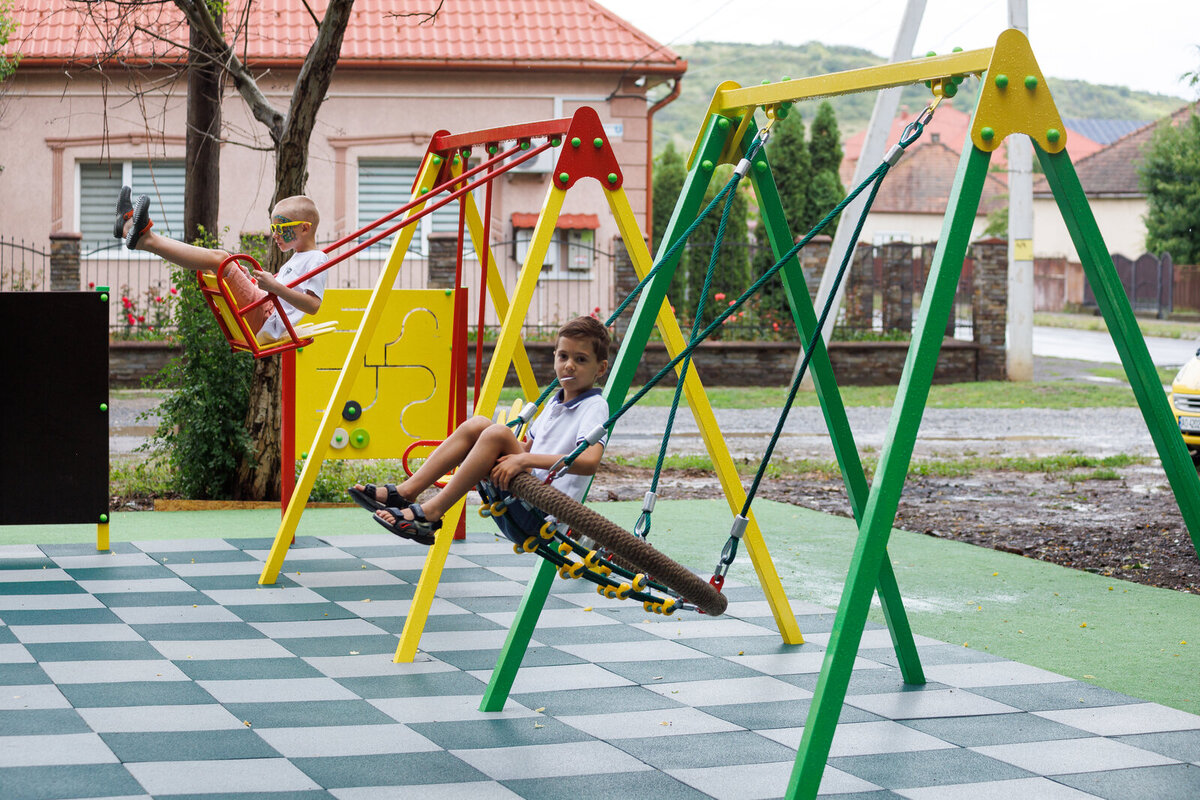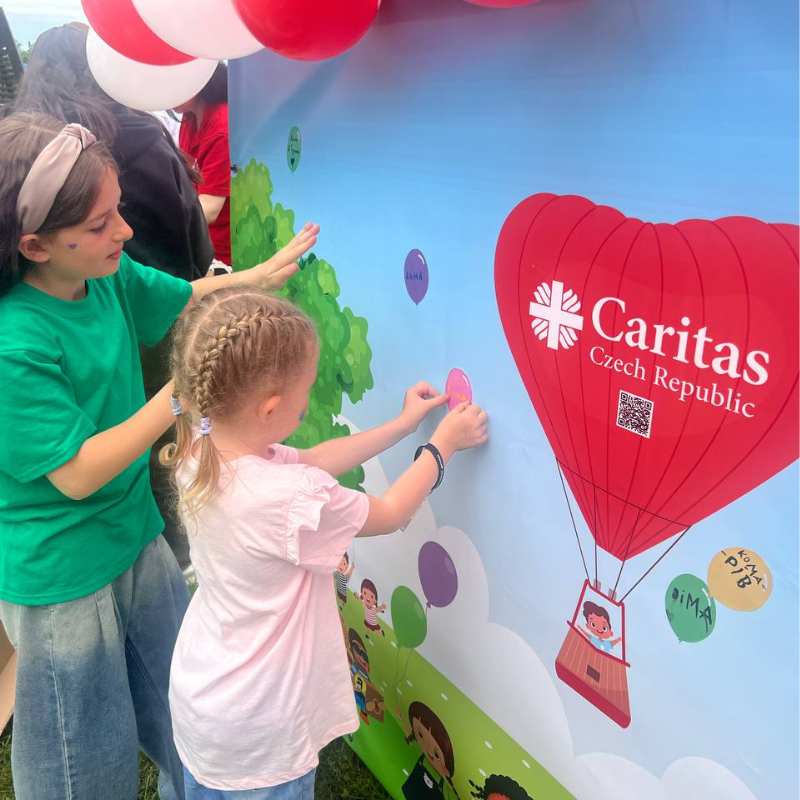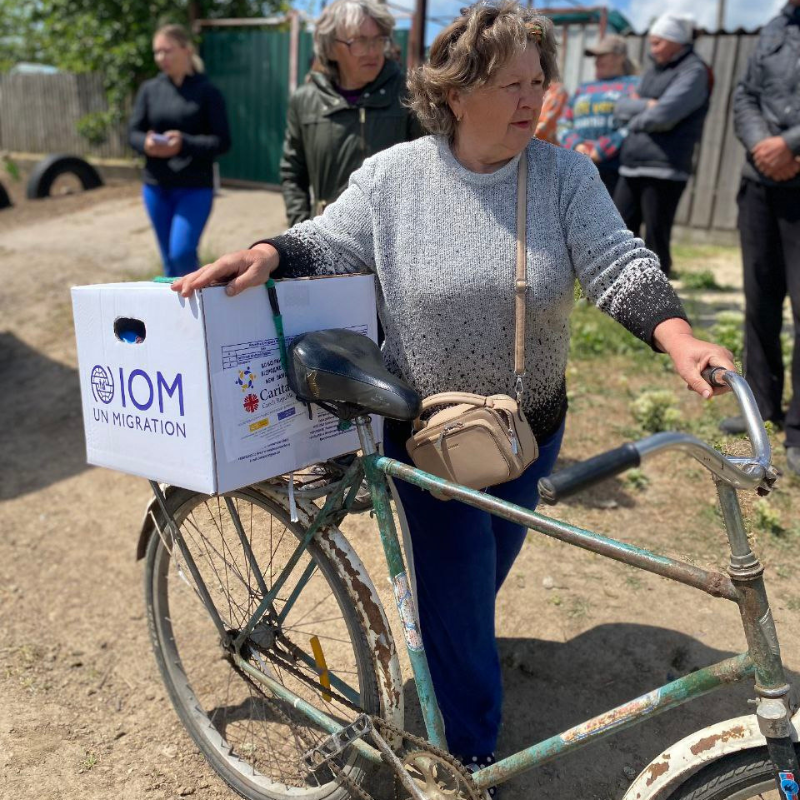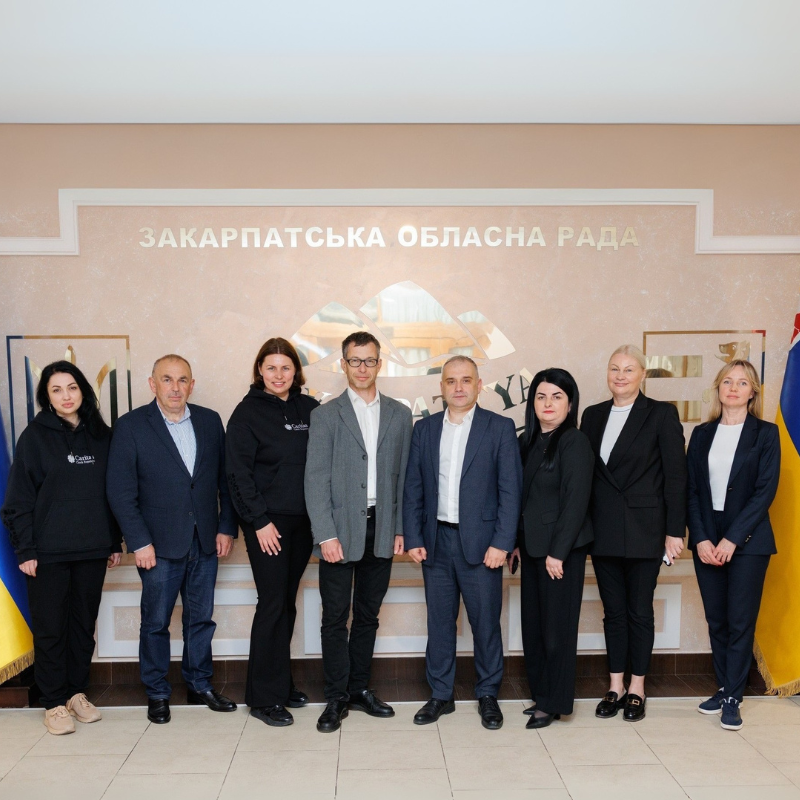During the last months, Ukraine has been experiencing the most intense wave of missile and drone attacks since the beginning of the war. The number of civilian casualties continues to rise, and the need for assistance remains immense. Evžen Diviš, regional manager of the Department for humanitarian aid and development cooperation at Caritas Czech Republic, outlines not only the current situation in the country and the impact of specific projects, but also explains why support for Ukraine remains essential.
Can you introduce a specific project that was recently completed, you are particularly proud?
In July, we opened a new accommodation facility in Berehovo, a town in western Ukraine just a few kilometres from the Hungarian border. It is a three-storey building that previously served as a student dormitory. Today, it provides collective accommodation for 180 people, who had to leave areas already occupied or threatened by fighting. Sanitary facilities and kitchens are located in the corridors, but residents now have a roof over their heads, a sense of stability, and safety. In their extraordinary situation, this is of great importance.
Where is humanitarian aid most urgently needed today – and why?
Setting aside our own area of work, military support remains the top priority — it is essential for Ukraine to continue defending itself against Russian aggression, and for there to be anyone left to receive humanitarian aid at all. In terms of humanitarian aid, securing housing for people fleeing from high-risk areas is absolutely crucial. With each advance of the Russian army, the number of internally displaced persons increases. We are working on their integration, helping them to restore a dignifiedand independent life, and in many cases, to restart their businesses after losing their original livelihood in the east.
Another key area is the repair of war-related damage – including damage to the healthcare system. We also focus on education – schools must continue to operate even under threat.
Material assistance is also essential – we distribute warm clothing and insulate homes to help people survive the winter. Lastly, but no less importantly, we provide psychosocial support. We help people cope with war-related trauma, while also strengthening the resilience of society as a whole. This is a complex and enduring challenge - Ukraine will be dealing with the consequences of this war for decades.
How are the donations from individual supporters used by Caritas Czech Republic?
They support all of the above-mentioned activities. Although most projects are funded by the Ministry of Foreign Affairs of the Czech Republic, the Czech Development Agency or international partners, contributions from individual donors are vital for co-financing.
Caritas Czech Republic deeply values every single donor – it is thanks to them that aid can reach those who need it most. Every contribution has a tangible impact on people’s lives.
Support for Ukraine remains essential – perhaps now more than ever. Russia continues to advance, air strikes are intensifying, and the number of displaced people and damaged infrastructure is growing. It is in our shared interest that Ukraine is able to defend itself and remain resilient. Regarding the debate about Ukrainian refugees in the Czech Republic, statistical data show that they have already contributed more in taxes than what has been spent on aid.
Where exactly does Caritas Czech Republic operate in Ukraine?
We are active in three main regions:
- Western Ukraine: Zakarpattia, Lviv, and Ivano-Frankivsk regions
- Eastern Ukraine: Dnipropetrovsk region
- Southern Ukraine: Kherson region
In all of these areas, we operate effectively and with measurable impact. We have ten local staff members on the ground, and three people at the Caritas Czech Republic headquarters in Prague are dedicated to work related to Ukraine. We are also supported by partner organisations.
Does Caritas Czech Republic focus on anything that other Czech organisations do not?
Yes, it can be said that we have developed a stronger profile in certain areas. One such area is the provision of housing for refugees from eastern Ukraine, which we have been focusing on since the summer of 2022. We renovate buildings—such as university dormitories or boarding houses — and adapt them into accommodation centres that meet relevant humanitarian standards and offer dignified living conditions.
We also construct modular housing units for vulnerable groups of refugees — mothers with children, seniors, and people with disabilities. These are very small and simple prefabricated homes that provide the necessary privacy for these at-risk groups.
Another strong area of Caritas Czech Republic is rehabilitation care in the Dnipropetrovsk region. We have renovated rehabilitation departments in six hospitals, are involved in further training of their medical staff, and are preparing deliveries of essential equipment, such as rehabilitation devices. The need for rehabilitation care naturally increases during wartime, and the departments we have strengthened will serve both patients recovering from strokes and those healing from war-related trauma.
You travel to Ukraine frequently. How would you describe your feelings?
I feel very close to the country and have great affection for it. For me, direct contact with the people we support is always important. I find spontaneous encounters particularly moving – I see soldiers heading to the front. In town squares, there are photographs of those who have fallen. It is emotionally very powerful.
Is there anything personal you would like to share in conclusion?
Yes, a small moment that made me feel appreciated. During my last visit to Ukraine in May, a soldier at a checkpoint let me pass without waiting when he saw my Czech passport. A few hours later, a police officer refused to let me pay a speeding fine – again, because I was from the Czech Republic. These may seem like small gestures, but they show that Ukrainians have noticed how the Czech Republic has behaved. They know it – and they show it.
Read more about our work and support in Ukraine















